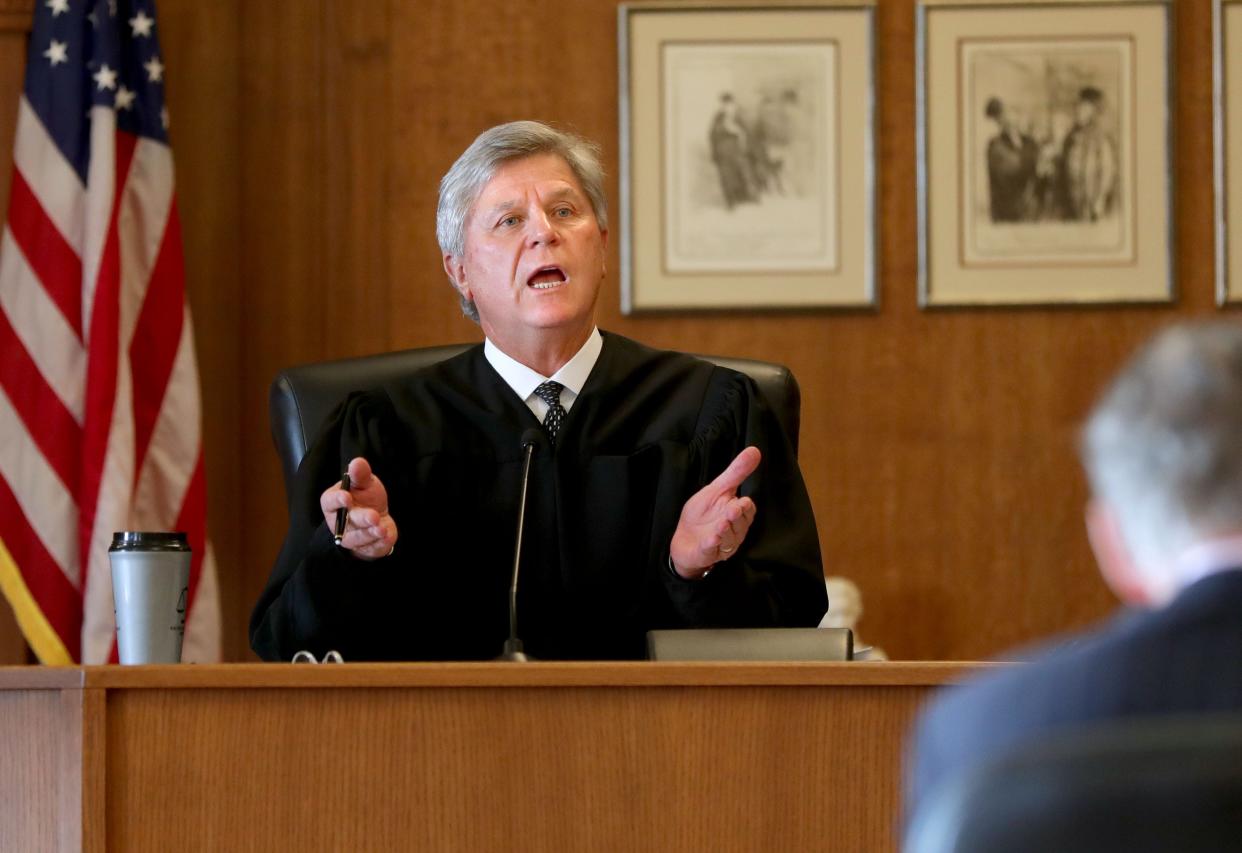Judge rules mobile voting sites not provided for in state law but backs other early voting sites

MADISON – Wisconsin law does not allow for the use of mobile absentee voting sites, a Racine County judge has ruled.
The decision was a partial win for Republicans who challenged the use in 2022 of a mobile voting van that traveled throughout the city of Racine to meet voters in their neighborhoods and collect early ballots. The complaint, first filed with the Wisconsin Elections Commission in 2022, contended the van was disproportionately deployed in heavily Democratic voting wards.
In another part of the decision, the judge rejected a complaint that fixed early absentee voting sites could not be placed in various locations in the city.
Interpreting the state's election laws to allow for the use of mobile voting vehicles is "a bridge too far," Racine County Circuit Judge Eugene Gasiorkiewicz wrote.
The van was first used in 2022 after the city purchased it through a grant from the Center for Tech and Civic Life, which is financed by Facebook founder Mark Zuckerberg and his wife. Republicans have since sought to ban the use of private grants to help local governments with the costs of elections, arguing they have advantaged cities with high concentrations of Democratic voters.
Gasiorkiewicz's decision reverses a finding by WEC that the van could be used as a legal polling place.
The election statute in question states "a municipality may elect to designate a site other than the office of the municipal clerk or board of election commissioners as the location from which electors of the municipality may request and vote absentee ballots and to which voted absentee ballots shall be returned by electors for any election."
The same law says "no site may be designated that affords an advantage to any political party," and states absentee ballot collection sites must be located as near as possible to a clerk's office.
Racine officials have disputed accusations that the van was selectively dispatched to blue-voting areas, and said any perception of bias stems from a poor understanding of the city's wards, which traditionally lean Democratic.
Gasiorkiewicz sided in part with Racine County GOP Chairman Ken Brown and the conservative Wisconsin Institute for Law & Liberty in determining that no state statutes allow for the use of mobile alternate absentee voting vehicles. Defendants could not cite any state law allowing for such use, Gasiorkiewicz wrote, but rather argued that there is no state law explicitly banning mobile voting sites.
Gasiorkiewicz rejected other elements of the complaint, including an assertion that in-person absentee voting sites must be located as physically close as possible to the municipal clerk's office. The judge agreed with defendants that additional factors beyond pure geographic standards could be considered.
The ruling does not express "an opinion regarding the efficacy of the use of mobile vans to further the popular use of in-person absentee balloting," the judge noted.
"This ruling stands for the proposition that such determinations are for the legislature to direct and cannot be a novel creation of executive branch officials," Gasiorkiewicz wrote.
Jessie Opoien can be reached at jessie.opoien@jrn.com.
This article originally appeared on Milwaukee Journal Sentinel: Judge rules mobile voting sites not provided for in state law

